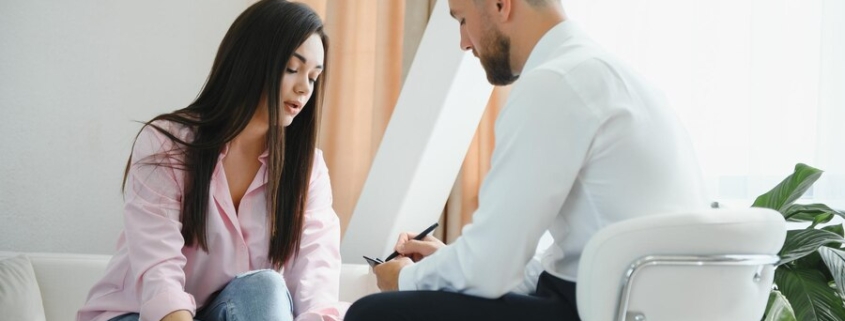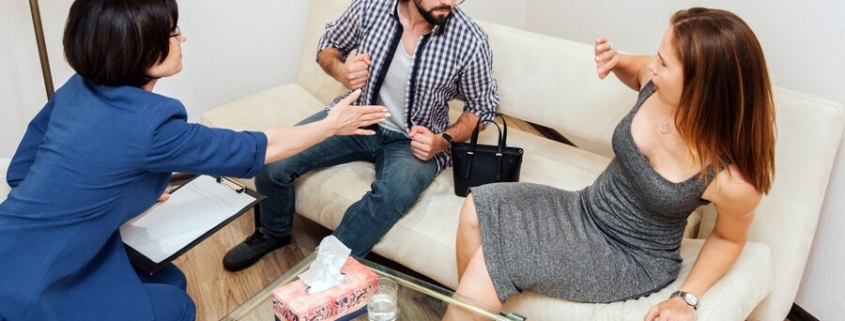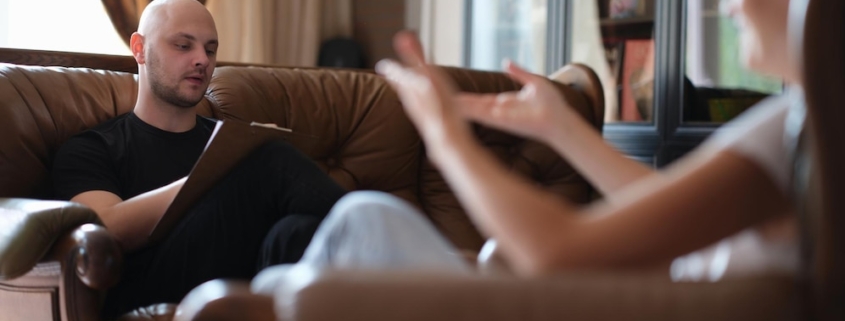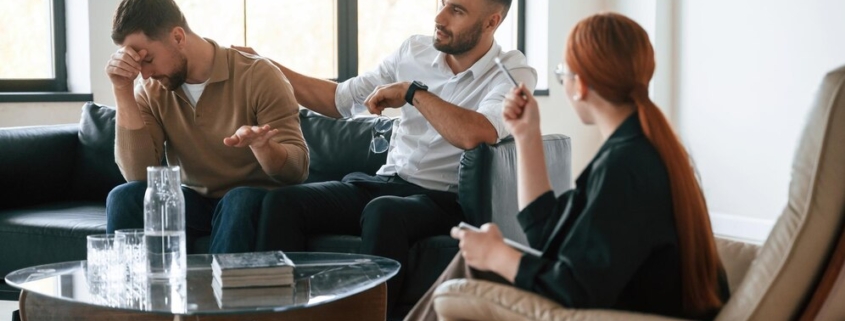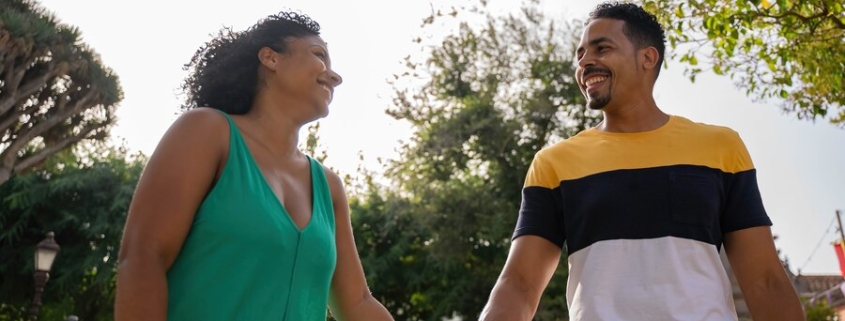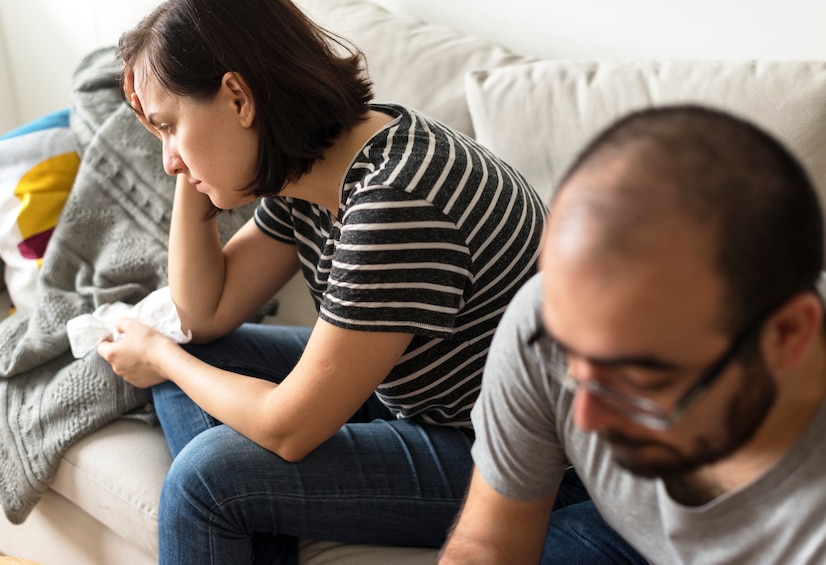Recovery from addiction is a challenging journey, one that becomes even more complex when undertaken as a couple. Both partners must navigate their own individual paths to sobriety while also supporting each other. This dual focus can be both a strength and a challenge. Couples rehab programs are specifically designed to address these unique dynamics, providing specialized tools and strategies to help partners manage triggers and temptations together.
In this article, we will explore the intricacies of managing triggers and temptations as a couple in recovery. We’ll start by understanding what triggers are and how they can affect each partner individually and as a unit. Then, we will dive into practical strategies for managing these challenges together, emphasizing the importance of communication, support networks, and creating a safe environment. Furthermore, we will highlight the tools and resources that couples rehab programs offer, such as therapy sessions, workshops, and aftercare programs, to support couples on their journey to sobriety.
Couples Rehab Services
Understanding Triggers in Recovery
Recovery from addiction is a deeply personal journey, yet when undertaken as a couple, it necessitates a nuanced understanding of both individual and shared experiences. Triggers, which can prompt cravings or relapse, are a significant aspect of this journey. Understanding these triggers is crucial for successful recovery, especially when both partners are navigating the path together.
A. Identifying Personal Triggers
The first step in managing triggers is to identify them. Personal triggers can vary widely from one individual to another and may include specific environments, people, emotions, or certain times of the day. For instance, one partner might find that stress at work or unresolved family conflicts are major triggers, while the other may be triggered by social gatherings or feeling isolated. It is essential for each partner to introspect and recognize these specific cues that could jeopardize their sobriety. Journaling, therapy sessions, and self-reflection exercises are effective tools for uncovering personal triggers.
B. Recognizing Partner’s Triggers
In a relationship, understanding your partner’s triggers is just as important as recognizing your own. This requires open and honest communication. Partners should share their triggers with each other and discuss how these triggers manifest. When both individuals are aware of what might prompt their partner’s cravings or distress, they can take proactive steps to provide support. This mutual recognition fosters empathy and strengthens the bond, transforming the relationship into a supportive pillar in each other’s recovery journey.
C. Impact of Shared Triggers
Shared triggers are experiences or environments that affect both partners simultaneously. These can be particularly challenging because they can create a compounded risk of relapse. For example, a couple might find that certain social settings, like parties where alcohol is present, or specific stressful situations, such as financial difficulties, act as shared triggers. It is vital to identify these commonalities and develop strategies to manage them together. This might involve avoiding certain settings, developing new, healthier routines, or seeking joint counseling to address shared stressors.
Strategies for Managing Temptations Together
When navigating the challenging path of recovery as a couple, managing temptations is crucial to ensuring long-term success. Here are some effective strategies to help couples stay on track together:
A. Communication Techniques
Open and honest communication is the cornerstone of any successful relationship, particularly for couples in recovery. Here are some techniques to enhance your communication:
- Active Listening: This involves fully concentrating, understanding, responding, and then remembering what your partner is saying. It’s not just about hearing words but understanding their emotions and concerns as well.
- Non-Judgmental Conversations: Create a safe space where both partners can express their feelings and thoughts without fear of criticism or judgment. This fosters trust and openness.
- Regular Check-Ins: Schedule regular times to discuss your progress, triggers, and any temptations you might be facing. This helps in staying aligned and providing support to each other.
- Use “I” Statements: Instead of blaming or accusing your partner, use statements like “I feel…” or “I need…” to express your own feelings and needs. This reduces defensiveness and promotes understanding.
B. Building a Support Network
A strong support network can make a significant difference in managing temptations. Here’s how to build one:
- Engage in Group Therapy: Participating in group therapy sessions allows you to connect with other couples facing similar challenges. Sharing experiences and advice can be incredibly beneficial.
- Lean on Family and Friends: Select trustworthy family members and friends who understand your journey and can offer non-judgmental support.
- Sponsor or Mentor Relationships: Having a sponsor or mentor who has successfully navigated recovery can provide invaluable guidance and encouragement.
- Community Involvement: Engage in community activities or support groups that align with your recovery goals. This can provide a sense of belonging and reduce feelings of isolation.
C. Creating a Safe Environment
Creating a physical and emotional environment that supports sobriety is essential. Consider the following steps:
- Remove Temptations: Clear your home of any substances or items that might trigger a relapse. This includes alcohol, drugs, or any paraphernalia associated with past use.
- Establish Routines: Consistency can provide a sense of stability. Establish daily routines that include healthy habits such as exercise, balanced meals, and sufficient rest.
- Set Boundaries: Clearly define and respect boundaries regarding social interactions, especially those involving people or settings that could trigger temptations.
- Mindfulness and Relaxation: Incorporate practices such as meditation, yoga, or deep breathing exercises into your daily routine to manage stress and reduce the likelihood of succumbing to temptations.
- Positive Reinforcement: Celebrate each other’s milestones and achievements, no matter how small. Positive reinforcement can boost motivation and morale.
By implementing these strategies, couples can effectively manage temptations and support each other in their recovery journey. The strength of their partnership, combined with these practical approaches, can pave the way towards a healthier, sober future.

Tools and Resources Available at Couples Rehab
Navigating the complex landscape of recovery becomes significantly more manageable with the right tools and resources. Couples rehab centers are designed to provide an environment that fosters healing and growth for both partners. Here’s an overview of the key tools and resources available to couples in recovery:
A. Therapy Sessions
Therapy sessions are the cornerstone of any effective rehab program. In couples rehab, these sessions are tailored to address both individual and relationship dynamics. Couples can expect to engage in:
- Individual Therapy: Each partner meets separately with a therapist to work on personal issues, such as past trauma, emotional regulation, and personal triggers. This one-on-one time is crucial for personal growth and self-understanding.
- Couples Therapy: These sessions bring both partners together to work on relationship-specific challenges. Therapists guide couples through communication techniques, conflict resolution strategies, and understanding each other’s triggers and emotional needs. This collaborative approach helps build a stronger, more resilient partnership.
- Group Therapy: Participating in group therapy with other couples provides a sense of community and shared experience. It allows couples to learn from others in similar situations, share their own stories, and gain new perspectives on managing triggers and temptations.
B. Workshops and Seminars
Rehab centers often offer a range of workshops and seminars designed to equip couples with practical skills and knowledge for long-term recovery. These educational sessions can include:
- Relapse Prevention: Workshops focused on identifying high-risk situations and developing strategies to avoid relapse. Couples learn how to support each other in maintaining sobriety during challenging times.
- Healthy Communication: Seminars that teach effective communication skills, including active listening, expressing needs without blame, and resolving conflicts constructively. These skills are essential for maintaining a healthy and supportive relationship.
- Stress Management: Techniques for managing stress and anxiety, which are common triggers for relapse. Couples learn relaxation techniques, mindfulness practices, and other coping mechanisms to handle stress together.
C. Aftercare Programs
Recovery doesn’t end when couples leave the rehab center. Aftercare programs provide ongoing support to help couples maintain their sobriety and continue their personal and relational growth. These programs may include:
- Continued Therapy: Access to ongoing individual and couples therapy sessions after completing the initial rehab program. This continued support helps couples navigate the challenges of real-life situations while maintaining their recovery progress.
- Support Groups: Participation in support groups for couples in recovery, such as Alcoholics Anonymous (AA) or Narcotics Anonymous (NA). These groups provide a sense of community and accountability, helping couples stay connected to their recovery journey.
- Alumni Programs: Many rehab centers offer alumni programs that include regular check-ins, social events, and additional workshops. These programs keep couples engaged with the recovery community and provide opportunities for continued learning and support.
In summary, couples rehab centers offer a comprehensive suite of tools and resources designed to support both individual and relationship recovery. By participating in therapy sessions, attending workshops and seminars, and engaging in aftercare programs, couples can build a solid foundation for long-term sobriety and a healthier, more fulfilling relationship.
Managing Triggers and Temptations at Couple Rehab
Navigating the complexities of recovery can be challenging, but doing so alongside a partner offers unique opportunities for mutual support and growth. By understanding and managing triggers and temptations together, couples can strengthen their bond and create a healthier, more resilient relationship.
Recognizing personal and shared triggers is the first step in this journey. It requires honest self-assessment and open communication with your partner. By identifying what specifically causes stress or cravings, both individuals can work together to avoid or manage these triggers effectively.
Communication is the cornerstone of managing temptations as a couple. By establishing clear, empathetic dialogue, partners can share their struggles and victories, helping each other stay accountable. Building a robust support network, which may include friends, family, or other couples in recovery, can further bolster this effort. Equally important is creating a safe and supportive environment, both at home and in social settings, to minimize exposure to temptations.
Couples rehab programs provide invaluable tools and resources to aid in this process. Therapy sessions offer personalized guidance and strategies, while workshops and seminars provide educational insights and practical skills. Aftercare programs ensure that the support continues long after the initial phase of rehab, helping couples maintain their progress and adapt to new challenges.
In conclusion, managing triggers and temptations as a couple in recovery demands dedication, patience, and a collaborative approach. By leveraging the strategies and resources available at couples rehab, partners can not only overcome addiction but also build a stronger, more understanding relationship. Ultimately, the journey of recovery can bring couples closer, fostering a partnership rooted in mutual respect, empathy, and a shared commitment to a healthier future

FAQs
- Q: How can couples manage triggers and temptations in their recovery journey at Couples Rehab? A: Couples Rehab provides couples with tools and strategies to effectively manage triggers and temptations in their recovery journey. Through therapy, education, and support, couples learn healthy coping mechanisms and develop a strong foundation for lasting sobriety.
- Q: What are triggers and temptations in the context of addiction recovery? A: Triggers are situations, people, or emotions that can ignite cravings for substances or behaviors associated with addiction. Temptations are external influences or opportunities to engage in substance use or addictive behaviors. Recognizing and managing these triggers and temptations is crucial for long-term recovery.
- Q: How does Couples Rehab help couples identify and understand their triggers and temptations? A: Couples Rehab offers individual and couples therapy sessions where couples can explore their triggers and temptations in a safe and supportive environment. Therapists work closely with couples to help them gain insights into their unique triggers and develop personalized coping strategies.
- Q: Are there specific techniques or tools provided at Couples Rehab to manage triggers and temptations as a couple? A: Yes, Couples Rehab equips couples with a range of techniques and tools to manage triggers and temptations. These may include cognitive-behavioral therapy (CBT), mindfulness practices, stress reduction techniques, relapse prevention planning, and communication skills training.
- Q: Can couples support each other in managing triggers and temptations during their recovery journey? A: Absolutely. Couples play a significant role in supporting each other in managing triggers and temptations. Couples Rehab encourages open communication, empathy, and teamwork, fostering an environment where couples can provide mutual support and accountability.
- Q: How can couples navigate social situations and environments that may trigger cravings or temptations? A: Couples Rehab provides couples with the necessary skills to navigate social situations and environments that may trigger cravings or temptations. This may include developing an effective support network, setting boundaries, and practicing self-care strategies to maintain sobriety.
- Q: Are there aftercare programs or resources available at Couples Rehab to help couples manage triggers and temptations post-treatment? A: Yes, Couples Rehab offers aftercare programs and resources to help couples manage triggers and temptations after completing their treatment. These may include support groups, relapse prevention workshops, and access to ongoing therapy or counseling as needed.
- Q: Can couples learn to transform triggers and temptations into opportunities for growth and resilience? A: Yes, with the guidance and support of Couples Rehab, couples can learn to transform triggers and temptations into opportunities for growth and resilience. By developing healthy coping mechanisms, couples can navigate challenging situations and emerge stronger in their recovery journey.
- Q: How long does it typically take for couples to effectively manage triggers and temptations in their recovery? A: The time it takes for couples to effectively manage triggers and temptations in their recovery can vary. It depends on various factors, including the severity of addiction, individual progress, and the couple’s commitment to therapy and implementing coping strategies in their daily lives.
- Q: How can couples access support for managing triggers and temptations at Couples Rehab? A: Couples can access support for managing triggers and temptations at Couples Rehab by enrolling in the comprehensive treatment program. The rehab center provides a safe and nurturing environment for couples to address these challenges, with therapists and resources dedicated to their recovery success.

